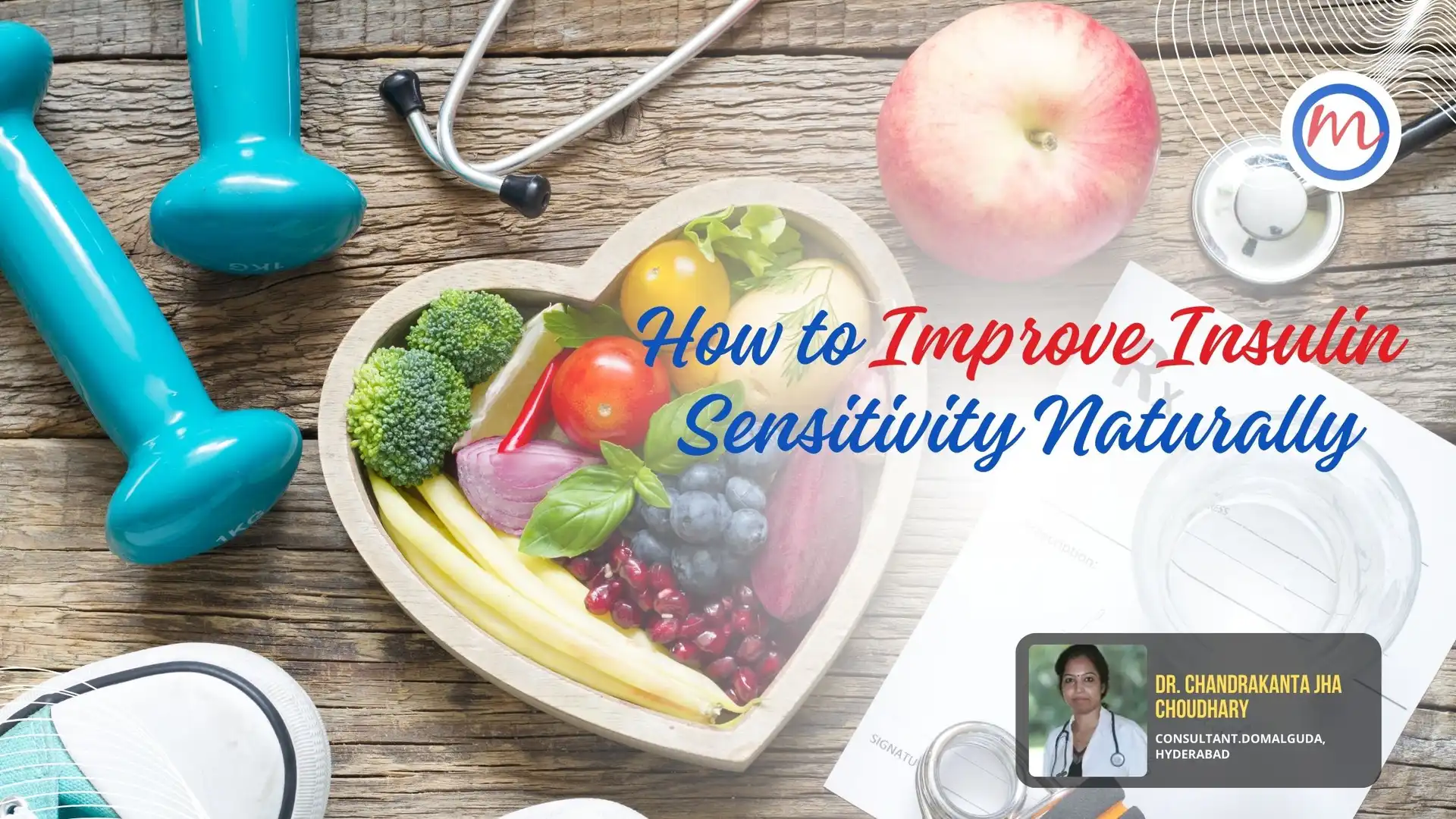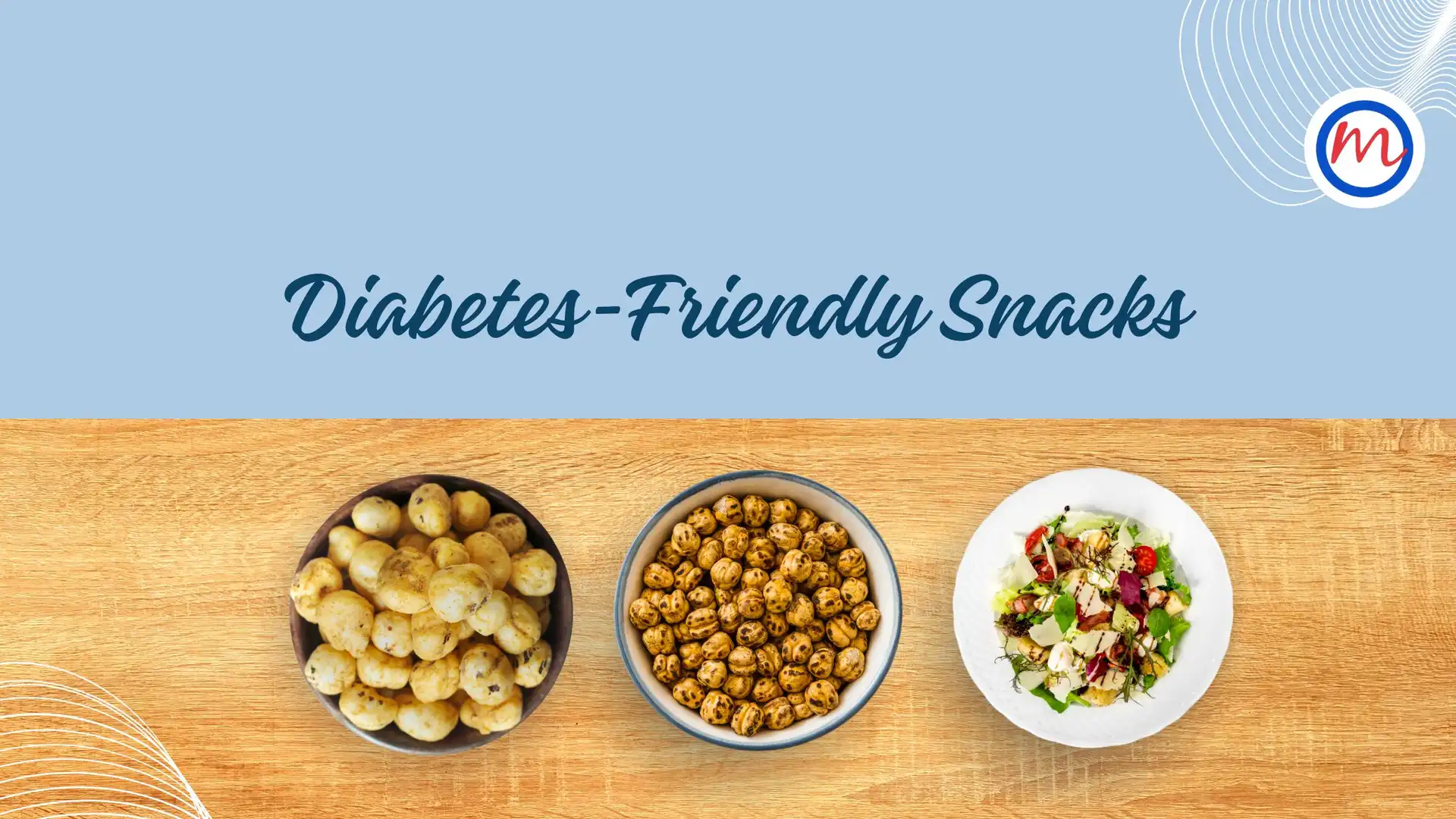How to Improve Insulin Sensitivity Naturally
What is Insulin Sensitivity?
Insulin is a hormone produced by the pancreas that helps glucose (sugar) enter muscle cells, fat, and the liver for energy. When cells do not respond well to insulin, it is called insulin resistance or low insulin sensitivity. High insulin sensitivity means cells are more responsive to insulin, allowing glucose to enter more efficiently.
Why is Insulin Sensitivity Important?
Low insulin sensitivity, or insulin resistance, can lead to elevated blood sugar levels (hyperglycaemia), increasing the risk of prediabetes, type 2 diabetes, obesity, fatty liver, dyslipidaemia, and heart disease. Over time, consistently high blood sugar levels can damage blood vessels and organs, leading to severe health complications.
Factors Affecting Insulin Sensitivity
- Lifestyle: Regular physical activity, a balanced diet, and weight management improve insulin sensitivity.
- Genetics: Some individuals are genetically predisposed to insulin resistance.
- Age: Insulin sensitivity naturally declines with age.
- Obesity: Excess body fat, especially around the abdomen, contributes to insulin resistance.
Measuring Insulin Sensitivity
Insulin sensitivity can be assessed through various tests, including:
- Fasting Blood Glucose Test: Measures blood sugar levels after an overnight fast.
- HbA1c Test: Measures the average blood sugar levels over the past 2 to 3 months.
- Insulin Sensitivity Index (ISI): Determines how well the body responds to insulin.
How to Improve Insulin Sensitivity Naturally
Enhancing insulin sensitivity is crucial for better blood sugar control and overall health. Several lifestyle changes can significantly improve how the body processes glucose.
Lifestyle Changes
- Exercise Regularly:
- Physical activity is one of the most effective ways to improve insulin sensitivity.
- Both aerobic exercises (walking, running) and strength training help muscles use glucose more efficiently.
- High-Intensity Interval Training (HIIT) is particularly beneficial in reducing insulin resistance.
- Aim for at least 150 minutes of moderate-intensity aerobic exercise or 75 minutes of vigorous-intensity aerobic exercise per week.
- Maintain a Healthy Weight:
- Excess weight, especially around the abdomen, is linked to insulin resistance.
- Even a modest weight loss of 5-10% can significantly enhance insulin sensitivity.
- Manage Stress:
- Chronic stress raises cortisol levels, which can impair insulin function.
- Activities like meditation, yoga, and deep breathing exercises help lower cortisol and improve insulin sensitivity.
- Prioritize Quality Sleep:
- Poor sleep reduces insulin sensitivity and disrupts appetite regulation.
- Aim for 7-8 hours of quality sleep each night.
- Stay Hydrated:
- Drinking adequate water helps regulate blood sugar levels and reduces the risk of insulin resistance.
- Intermittent Fasting:
- This meal-timing approach may improve insulin sensitivity and lower the risk of type 2 diabetes for some individuals.
Dietary Modifications
- Eat a Balanced Diet:
- Choose whole, unprocessed foods and reduce refined sugars and carbohydrates to prevent insulin spikes.
- Focus on fibre-rich foods like vegetables, fruits, whole grains, and legumes, as they slow glucose absorption.
- Include healthy fats (avocados, nuts, olive oil) and lean proteins to support insulin function.
- Add probiotic-rich foods like yogurt, buttermilk, and fermented foods to promote gut health.
Natural Supplements
- Chromium:
- Helps in carbohydrate and fat metabolism.
- Found in whole grains, poultry, nuts, apples, grapes, and broccoli.
- Cinnamon:
- Shown to enhance insulin sensitivity and glucose uptake.
- Alpha-Lipoic Acid:
- An antioxidant that improves insulin sensitivity.
- Found in red meat, spinach, broccoli, tomatoes, beets, carrots, and rice bran.
- Omega-3 Fatty Acids:
- Found in fatty fish, flaxseeds, and chia seeds.
- Possess anti-inflammatory properties that enhance insulin sensitivity.
- Green Tea:
- Contains Epigallocatechin gallate (EGCG), a powerful antioxidant that boosts insulin sensitivity.
Incorporating these habits into daily life can naturally improve insulin sensitivity, promoting better overall health and reducing the risk of type 2 diabetes.
Dr. Chandrakanta Jha Choudhary, Consultant
Dr. Mohan’s Diabetes Specialities Centre
Domalguda, Hyderabad



